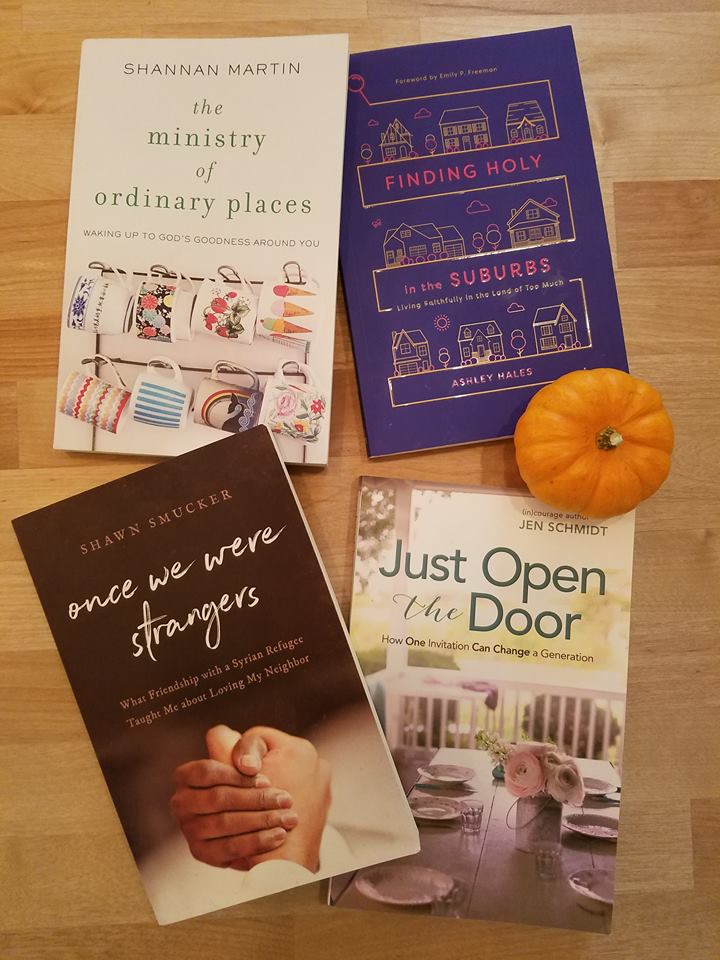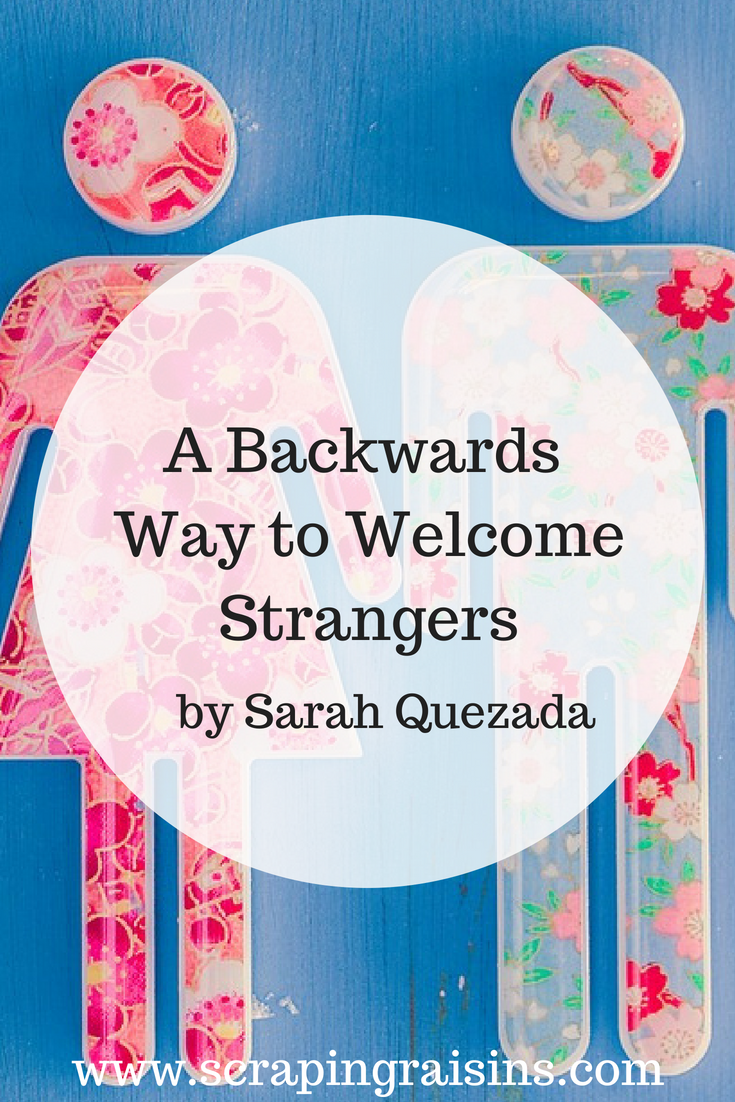
By Jessica Peretti | Instagram: @roonieandlucia
This summer I had the opportunity to return as a counselor at a Bible camp I worked at in college. I was thrilled to head to the mountains to spend the week with some first to third graders. I donned my staff shirt, put on a brave face, and led them in hikes, games, songs and adventure. Over those few days, I saw eight little girls bond over games, songs and giggles.
One of my girls, Sarah, was a refugee from Cameroon. Our counterpart male cabin also had eight boys, and two of those boys, John and Dylan, were Sarah’s cousins. Idaho is not a particularly diverse state. In high school we would joke about the many shades of white in Idaho. But in Boise we have a pocket of refugee families. The churches that supported the camp also helped refugees adjust to American life.
Each morning, I would coo softly to the girls, “It’s time to wake up ladies.” I’d move by each of the bunks and pat the heads of each one until their eyes fluttered open.
Sarah would look at me, smile, grab my arm and say “I’m soooo tired!” with a huge smile plastered on her face. Despite her exhaustion she was the first one dressed and ready to head out. Later in the day, when my eyes would barely stay open, Sarah would run up to me, wrap her arms around me and exclaim “You are my second favorite counselor!” To which I would fall to the floor proclaiming the injustice of it all, as I should be her first favorite counselor. Her smiles and laughter fueled me into the next hours of our day. At the end of the week, I drove Sarah and her cousins back to Boise.
We loaded into my car and headed out on the long drive back to the city. The two boys mostly spoke French, and did not seek any attention from me. “Any of you guys want a coffee stop?” I asked as we pulled into the biggest town we’d hit until we arrived home.
“Yes!” The ruckus from the back almost drove me off the road, but we made it into the shop.
“All right kiddos, you can each pick one treat. What were you thinking, John?” John looked up at me with big eyes and grabbed the largest rice krispy treat from the top of the pile. I bought coffee, and we headed back onto the road. “John what’s your favorite candy?” I glanced back at him in the rearview mirror, and he looked at me.
“Snickers!” He eventually answered and returned to speaking to Dylan in French.
“Dylan,” I asked, “what’s your favorite color?” he paused, looking equally confused and answered, “Green!”
“You know,” Sarah chimed in. “Our teacher can speak French.” My heart melted. She’d called me ‘teacher’ a few times over the week, but every time it caught me off guard.
“Yeah, I know a little,” I said. She beamed at me from the back seat. “I can tell you the story of the Little Red Hen in French.”
“Yes please!” Sarah exclaimed. I recited the story I had memorized in high school.
“Il y a une petite poule rouge.” Giggles erupted from the back seat. “What? Is my accent really that bad?”
“Yes!” John yelled. A light flickered in his eyes– one I hadn’t yet seen the whole week we’d spent together. “I cannot understand what you are saying!”
“I can.” Sarah answered. “She said ‘Once upon a time there was a little red woman.’”
“No!” Dylan joined in the fun. After stumbling through the rest of the story, they clutched their sides with laughter. The next three hours flew by, and I connected with the kids in ways I hadn’t until that point.
We drove to the church to meet their parents, and the kids bolted from the car. They ran around yelling and playing. Their parents arrived, and the two boys didn’t even look back–just rushed into their parent’s car. Sarah hugged me.
“Promise me you’ll come back next summer?” I said.
“Yes! You’ll be there right?” Sarah asked.
“I’ll try my best.” I shook her dad’s hand, and told him Sarah was a fun kid to have in my cabin. (All of this was in broken French/English.)
I climbed back into my car, soaking up the silence, and surveyed the damage from their lunches in the back seat. I had spent the week trying to connect with Dylan and John. I had asked them questions and tried to play with them, but it wasn’t until I attempted to speak French with them that they came alive. I wondered how many positive interactions those kids had with adults who only spoke English.
In a world where everything for these kids was different–the culture, the language, the people and the surroundings (aka camp)–it must have been comforting to have someone try to connect with their culture rather than thrust our culture upon them.
Jesus tells us to welcome the stranger. I wonder how much easier it would be to welcome strangers if we allowed ourselves to be strangers in the cultures of those we are trying to welcome. Instead of inundating foreign visitors, immigrants and refugees with the new, perhaps it would be better to share some of what they know and love. Maybe that way, I’ll eventually become Sarah’s first favorite counselor.
About Jessica:

Jessica Peretti is a software engineer by day and a blogger by night. Her interests include hiking, running, backpacking, coding and weight-lifting. She loves working with kids and singing with her church’s choir every Sunday. Follow her on Instagram, Facebook, Pinterest, or on her website.




 Josi grew up on a farm in rural Nebraska. She received a Masters in Biblical and Intercultural Studies in Chicago. Shortly thereafter, Josi and her husband moved to West Africa to do business and non-profit work. Once they returned to Chicago, they worked for a refugee resettlement agency. Now they work for
Josi grew up on a farm in rural Nebraska. She received a Masters in Biblical and Intercultural Studies in Chicago. Shortly thereafter, Josi and her husband moved to West Africa to do business and non-profit work. Once they returned to Chicago, they worked for a refugee resettlement agency. Now they work for 
 This month on Scraping Raisins we’re talking about practical and impractical hospitality. Be sure to follow along on my social media channels (buttons on top right of website) and
This month on Scraping Raisins we’re talking about practical and impractical hospitality. Be sure to follow along on my social media channels (buttons on top right of website) and 
 Sarah Quezada is a writer living in a bicultural household in Atlanta, Georgia. She has a master’s in sociology and writes regularly at
Sarah Quezada is a writer living in a bicultural household in Atlanta, Georgia. She has a master’s in sociology and writes regularly at 
 The theme for August is “Homelessness, Refugees & the Stranger.” Follow along on social media (links in upper right) to keep up with the latest posts or sign up for the newsletter below for links to the most recent blog posts, thought-provoking articles from the web, and a few of the things I’m into these days.
The theme for August is “Homelessness, Refugees & the Stranger.” Follow along on social media (links in upper right) to keep up with the latest posts or sign up for the newsletter below for links to the most recent blog posts, thought-provoking articles from the web, and a few of the things I’m into these days.